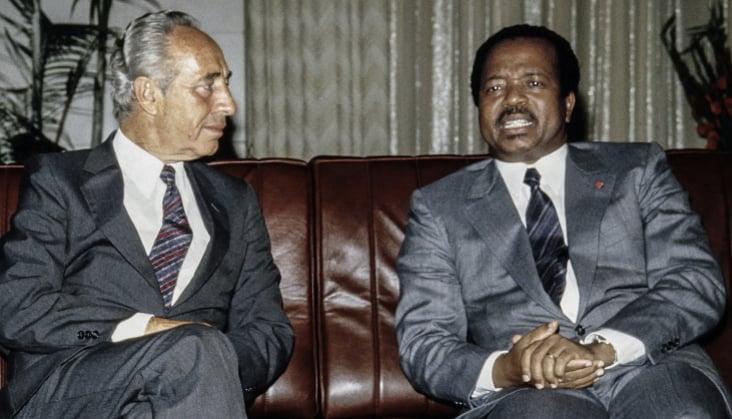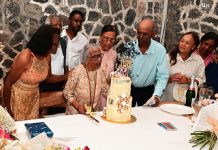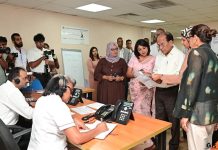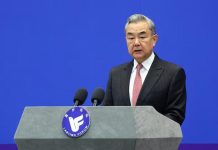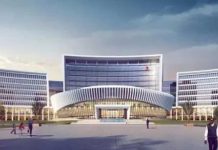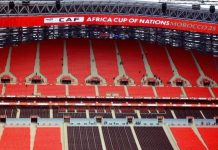Franck Foute
Africa-Press – Mauritius. Cameroonian President Paul Biya has shown firm and unambiguous support for Israel. 48 hours after the Hamas attack on Israel on 7 October, he expressed his “sincere condolences” to Israel, a victim of the “Islamic Palestinian militant group Hamas”.
In a letter to his counterpart, Isaac Herzog, on 9 October, Biya said: “It was with real emotion that I became aware of the terrible human toll that was caused by this attack.
The Cameroonian president made no mention of the approximately 560 deaths and 2900 injuries that had already been recorded on the Palestinian side as a result of the Israeli response in Gaza.
Instead, he extended his wishes for the “speedy recovery of the injured” and his hopes for the “release of all citizens held hostage” to the Israeli side only. A position that contrasts with the stance of the African Union.
The AU has attributed the recent hostilities in the Middle East to the “denial of the fundamental rights of the Palestinian people, including the right to an independent state.
” Cameroon also diverged from the position adopted by the vast majority of African countries that have cautiously called for de-escalation.
“This is the logical progression of the relationship between the two countries,” says an academic who wishes to remain anonymous.
Cameroon’s approach is in line with historic cooperation in the security and diplomatic sectors that developed in a specific context shortly after Biya came to power.
Two years after taking office in 1982, the new Cameroonian president was the victim of an attempted coup by elements of the Republican Guard, theoretically responsible for his security.
Despite the failure of the coup, the president recognised the weaknesses in the services supposed to protect him. Consequently, he initiated a significant reorganisation of his security apparatus.
Cameroon generally takes a positive neutral position in international meetings Under the new security strategy, military officers from the northern part of the country, like his predecessor Ahmadou Ahidjo, suspected of being behind the coup attempt, were side-lined.
France, which had hitherto provided training for the Republican Guard, was also excluded. Aware of the security threat looming over the country’s institutions, Biya turned to the Israelis and initiated the resumption of diplomatic relations with Tel Aviv, which had been severed since the Yom Kippur War in 1973.
At the same time, Israel was continuing to strengthen its reputation in the military field and attracting many African governments. One example of cooperation in this regard is Zaire (now DRC), which Biya visited in 1985.
This trip allowed him a close look at the system established by the Israelis, which Meir Meyuhas, an Egyptian Jew, former Israeli army colonel and owner of a pharmaceutical factory in Zaire, had been trying to replicate in Yaoundé since 1984.
Cameroonian President Biya personally oversaw the Israeli dossier from his office at the Etoudi Palace. He had a small circle of loyalists at his side, including his Chief of Staff Benae Mpecke, who made several trips to Tel Aviv.
The minister of foreign affairs at the time, William Eteki Mboumoua, cited by Narcisse Mouelle Kombi in his book Cameroon’s Foreign Policy (L’Harmattan, 1996), said he was never informed of the resumed relations with Israel.
“People called me from everywhere for information I didn’t have,” he said. In 1985, Meyuhas was behind the creation of the Presidential Guard, born from the dissolution of the Republican Guard.
Israeli instructors were entrusted with training this new unit, including Avi Abraham Sivan, defence attaché of the newly established Israeli diplomatic mission in Cameroon.
Security cooperation with the Israeli state expanded: military supplies to the army, training of personnel in Israel, and in 1995, the installation of a communication system called Helios, a product of cooperation with Mossad, the Israeli intelligence service.
In 1999, Israel brought an end to this momentum, owing to economic challenges it faced. This juncture also marked the termination of Israeli defence attachés’ presence in Yaoundé.
Nonetheless, the relationship continues, now the prerogative of experts, with Cameroon extending an offer to keep working in Yaoundé via private contracts. Among the beneficiaries of this arrangement stands Colonel Avi Abraham Sivan, formerly defence attaché at the embassy.
Sivan inherited a technical assistance contract, which placed him in charge of recruiting and training a commando of 3000 soldiers, future members of the Light Intervention Battalion (BLI), which became the Rapid Intervention Battalion (BIR) in 2001.
Sivan then took command of the BIR, a true army within the army, which became President Biya’s Praetorian guard. This position made the former colonel a key link in the country’s security system until his death in 2010.
In addition to military cooperation, Cameroon has become a diplomatic ally of Israel. Along with Eritrea, Cameroon is the only country in Africa that has not recognised the existence of a Palestinian state.
In 1986, Biya even dared to host the then-Israeli Prime Minister Shimon Peres in Yaoundé, despite pressure and criticism from some African and Arab countries and organisations.
This was the first visit by an Israeli PM to Sub-Saharan Africa in 20 years of relations. A year later, Cameroon opened an embassy in Tel Aviv, and Biya appointed Philippe Mataga, one of his close associates, as the first ambassador.
“Cameroon generally takes a positive neutral position in international meetings,” says the previously mentioned academic.
“It’s a form of political support characterised by positive votes or abstentions.
” This was the case in April 1987 when Cameroon refused to vote for an Organisation of African Unity resolution condemning Israel’s oppression in the occupied territories.
Similarly, in 1991, Cameroon voted for a resolution declaring null a 1975 UN resolution equating Zionism with racism. However, Biya is aware that his country, with a significant Muslim population in the northern region, is not always favourable to Israel.
Following his letter to the Israeli president, many Cameroonians took to social media to denounce the lack of empathy for Palestinian civilians. The president is walking a fine line.
He has never made an official visit to Israel despite multiple invitations, and Yaoundé does not recognise Jerusalem as the capital of the Israeli state. Has Cameroon drawn a red line here, despite the ties it has benefited from for four decades?
Nevertheless, the country had previously cast 134 votes against Israel on the international stage in 1986 and 1987, at the onset of the first Intifada, without it dealing a blow to the then nascent special relationship between the two nations.
Source: Theafricareport
For More News And Analysis About Mauritius Follow Africa-Press


